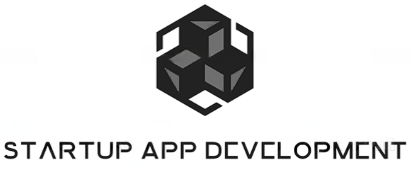In today’s fast-paced digital world, having a unique startup idea is just the beginning. The real challenge lies in transforming that idea into a tangible app that stands out in the crowded marketplace. This journey requires a blend of creativity, technical expertise, and strategic planning. In this blog, we’ll explore how app developers can effectively turn startup concepts into reality.
Understanding the Core Problem
Every great app starts with a clear understanding of the problem it aims to solve. App developers should begin by dissecting the core issue at the heart of their startup idea, ensuring that their solution is both relevant and necessary to the target audience. This involves not just identifying the pain points but also understanding the context in which these problems occur. By putting themselves in the shoes of their potential users, developers can gain invaluable insights into user expectations and behaviors, paving the way for a solution that offers real value. According to Mobile App Ideas, turning an innovative idea into a real-world app demands a thorough understanding of this core issue right from the start.
Beyond identifying the problem, developers must also consider potential solutions and assess their feasibility and impact. This step is crucial for defining the app’s unique value proposition and setting the direction for development. The idea is to create a product that not only meets a specific need but also stands out in the market. This means thinking creatively about how to address user pain points in new and innovative ways. Developers should strive to build solutions that offer tangible benefits and enhance user experience, ensuring that their product is not just another app but a must-have tool for users.
Conducting Market Research
Market research is crucial in identifying gaps and opportunities within the industry. By analyzing competition and understanding user needs, developers can tailor their app to meet demand while offering something new and valuable. This involves diving deep into competitors’ offerings and understanding the strengths and weaknesses of existing products. By doing so, developers can pinpoint gaps in the market and identify underserved areas where their app can thrive. This insight is invaluable in crafting a strategy that positions the app as a leader in its category.
Furthermore, effective market research goes beyond competitor analysis. It involves a comprehensive examination of industry trends, user demographics, and behavioral insights. Developers should leverage tools like surveys, focus groups, and data analytics to gather a deeper understanding of what users truly value in an app. By maintaining a customer-centric approach, developers can ensure that their app not only addresses existing market needs but is also equipped to anticipate future demands. This proactive stance paves the way for long-term success and competitiveness.
Building a Minimum Viable Product (MVP)
Creating an MVP helps validate the startup idea by offering a basic version of the app. This approach allows developers to gather user feedback, refine features, and ensure the product aligns with market expectations before investing in full-scale development. An MVP is essentially a learning tool that provides real-world insights into how users interact with the app and what improvements might be necessary. By focusing on core functionalities, developers can streamline the development process and prioritize essential features that deliver maximum value.
By embracing the MVP approach, startups can significantly reduce the risks associated with app development. This strategy allows for quick validation of hypotheses and facilitates adjustments in a cost-effective manner. Through iterative development cycles, developers can constantly refine and improve their product, ensuring that the final app is not only user-friendly but also robust and scalable. MVPs also create opportunities for generating early revenue, which can be reinvested into further development. This iterative process aligns with agile methodologies, emphasizing speed, adaptability, and responsiveness to user feedback.
Collaborating with a Strong Team
Building a successful app often requires more than just one person’s expertise. App developers should collaborate with designers, marketers, and other essential team members to create a product that is both functional and appealing. This collaboration fosters a multidisciplinary approach where diverse skills and perspectives are leveraged to create a holistic user experience. By working closely together, team members can ensure that the app resonates with target audiences in every aspect, from usability to visual aesthetics.
Moreover, internal collaboration should be complemented by engaging with external stakeholders. By integrating feedback from early adopters and investors, developers can refine their products and strategies to better meet market expectations. Cross-functional team dynamics encourage innovation, as different experts contribute their unique viewpoints and ideas. This collaborative environment lays a solid foundation for successful product development, resulting in an app that is not only technologically advanced but also perfectly aligned with user preferences and industry standards.
Effective collaboration also involves maintaining open channels of communication. Regular updates and feedback sessions help keep everyone informed and aligned with project goals. This transparency mitigates risks, enhances team morale, and ensures that all aspects of the app development process are synchronized. In today’s fast-paced digital landscape, such seamless teamwork is indispensable for rapidly delivering high-quality products that surpass user expectations and achieve market success.
Leveraging Technology and Tools
Utilizing the right technology stack and development tools can significantly enhance the efficiency and quality of the app development process. Keeping up-to-date with tech trends ensures that the app leverages the latest innovations. From powerful coding frameworks to advanced project management tools, these resources streamline workflows, improve collaboration, and elevate the overall product quality. It’s essential for developers to select the technologies that align with their app’s specific needs, be it native mobile capabilities or cross-platform functionalities.
Staying abreast of emerging technological trends also provides developers with opportunities to incorporate cutting-edge features into their apps, ensuring they remain competitive in the market. For instance, integrating AI-driven personalization or utilizing blockchain for enhanced security can set an app apart from its competitors. By leveraging these innovations, developers can create apps that not only meet but exceed user expectations, delivering unique experiences that foster user loyalty and drive engagement.
Testing and Iterating Frequently
Regular testing is essential to fine-tune the app. By iteratively improving the product based on real user feedback, developers can enhance user experience and address potential issues before official launch. Testing involves more than just fixing bugs; it’s about uncovering insights into how users interact with the app in diverse scenarios. This understanding is crucial for refining interface designs, optimizing workflows, and ensuring that the app functions seamlessly across varied devices and operating systems.
Frequent iterations based on test results allow developers to incrementally build a more polished, robust app. This iterative cycle of testing and refining not only ensures higher quality but also reduces time-to-market, making it possible to launch the app swiftly and capitalize on new opportunities. Testing in real-world conditions also provides critical data on app performance, allowing developers to make informed decisions. This approach to continuous iterations enables developers to adapt swiftly, incorporating feedback that keeps the app dynamic and relevant.
Bringing Your Startup Vision to Life
Transforming a startup idea into a successful app demands more than just technical skills; it requires vision, adaptability, and collaboration. By engaging in thorough market research, leveraging MVPs, and remaining agile, app developers can turn their innovative concepts into thriving digital solutions. Embrace the journey, and remember that each challenge is an opportunity for growth and innovation.


